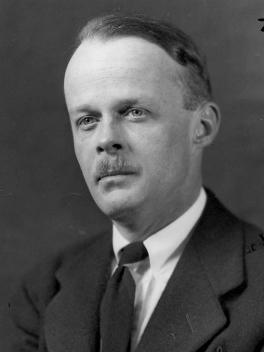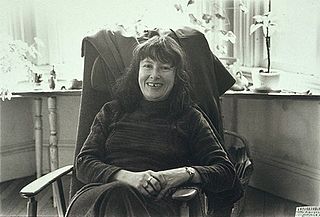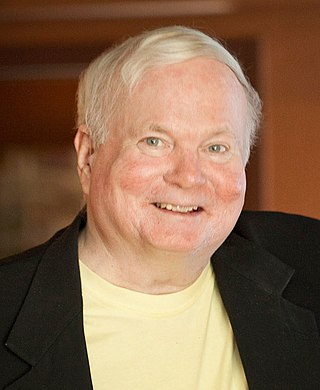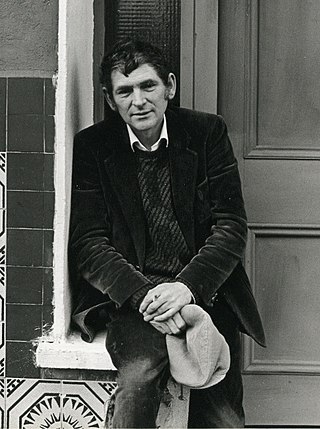Related Research Articles

John Orley Allen Tate, known professionally as Allen Tate, was an American poet, essayist, social commentator, and poet laureate from 1943 to 1944.

The Southern Review is a quarterly literary magazine that was established by Robert Penn Warren in 1935 at the behest of Charles W. Pipkin and funded by Huey Long as a part of his investment in Louisiana State University. It publishes fiction, poetry, critical essays, and excerpts from novels in progress by established and emerging writers and includes reproductions of visual art. The Southern Review continues to follow Warren's articulation of the mission when he said that it gives "writers decent company between the covers, and [concentrates] editorial authority sufficiently for the journal to have its own distinctive character and quality".

Priscilla Denise Levertov was a British-born naturalised American poet. She was a recipient of the Lannan Literary Award for Poetry.

Donald Patrick Conroy was an American author who wrote several acclaimed novels and memoirs; his books The Water is Wide, The Lords of Discipline, The Prince of Tides and The Great Santini were made into films, the last two being nominated for Oscars. He is recognized as a leading figure of late-20th-century Southern literature.

Michael Hartnett was an Irish poet who wrote in both English and Irish. He was one of the most significant voices in late 20th-century Irish writing and has been called "Munster's de facto poet laureate".
The American Book Award is an American literary award that annually recognizes a set of books and people for "outstanding literary achievement". According to the 2010 awards press release, it is "a writers' award given by other writers" and "there are no categories, no nominees, and therefore no losers."
The University of Georgia Press or UGA Press is the university press of the University of Georgia, a public land-grant research university with its main campus in Athens, Georgia. It is the oldest and largest publishing house in Georgia and a member of the Association of University Presses.

Jonathan Williams was an American poet, publisher, essayist, and photographer. He is known as the founder of The Jargon Society, which has published poetry, experimental fiction, photography, and folk art since 1951.
Amon George Liner was an American poet and playwright.
Guy Owen was a professor of English who produced many different types of literary works.
The Jargon Society is an independent press founded by the American poet Jonathan Williams. Jargon is one of the oldest and most prestigious small presses in the United States and has published seminal works of the American literary avant-garde, including books by Charles Olson, Louis Zukofsky, Paul Metcalf, James Broughton, and Williams himself, as well as sui generis books of folk art such as White Trash Cooking.
Founded in Upstate New York in 1978 by Maureen Brady and Judith McDaniel, Spinsters Ink is one of the oldest lesbian feminist publishers in the world. It is currently owned by publisher Linda Hill, who purchased the Spinsters Ink in 2005. Hill also owns Bella Books and Beanpole Books.
Jeanne Leiby was an American teacher, fiction writer and literary magazine editor. Leiby's short stories were published in several U.S. literary journals, including Fiction, Indiana Review, The Greensboro Review, and New Orleans Review. In 2000, she won the Poets and Writers Writer Exchange. Her first collection of short stories, Downriver, was published by Carolina Wren Press as the 2006 winner of the Doris Bakwin prize. Leiby also served as fiction editor of Black Warrior Review and as the Editor in Chief of the Florida Review (2004–2007). In Spring 2008, she took over as editor of The Southern Review at LSU in Baton Rouge, Louisiana.

Robie Mayhew Macauley was an American editor, novelist and critic whose literary career spanned more than 50 years.

Eleanor Ross Taylor was an American poet who published six collections of verse from 1960 to 2009. Her work received little recognition until 1998, but thereafter received several major poetry prizes. Describing her most recent poetry collection, Kevin Prufer writes, "I cannot imagine the serious reader — poet or not — who could leave Captive Voices unmoved by the work of this supremely gifted poet who skips so nimbly around our sadnesses and fears, never directly addressing them, suggesting, instead, their complex resistance to summary."

Jaki Shelton Green is an American poet. In November 2009, she was named the first Piedmont Laureate by a collection of Triangle-area arts councils. She currently resides in Mebane, North Carolina. Green teaches Documentary Poetry at Duke University within the Center for Documentary Studies.
Doris Mühringer was an Austrian poet, short story writer, and children's writer. She has received a number of awards, and her contributions to Austrian poetry, which both are considered particularly significant.

Headmistress Press is a small press based in Sequim, Washington. Founded in 2013, the press specializes in poetry by lesbian poets. Notable poets who have published collections with Headmistress include Janice Gould, Joy Ladin, Constance Merritt, and Lesléa Newman.

Lee Ann Brown is an American poet and book publisher. She has published several volumes of poetry in addition to being the founder of Tender Buttons Press, a poetry press dedicated to publishing experimental women's poetry.
Lollipop Power, Inc. was a nonprofit American independent publisher of children's books. Based in Chapel Hill, North Carolina, the group emerged from a culture of lesbian feminist organizing and was founded in 1969. Operating as a publishing collective of a rotating group of around 10 members, the press published non-sexist, non-racist picture books for children to counter depictions of gender-stereotyped roles in mainstream children's books.